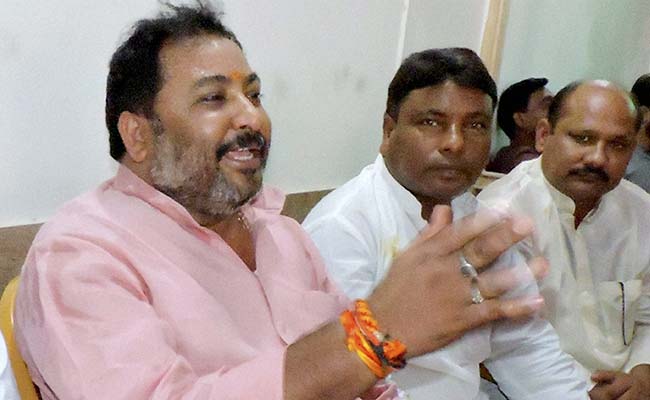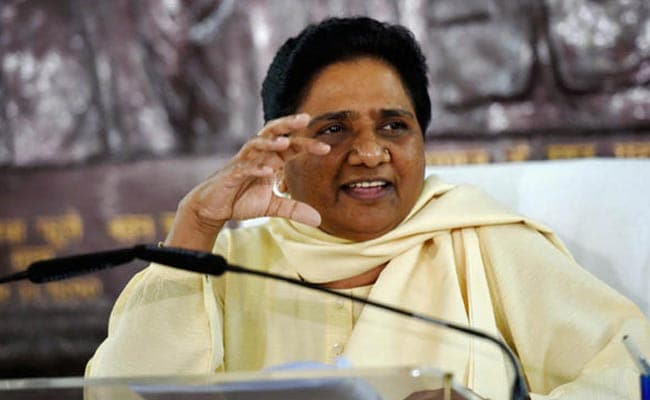That action came after the BJP tried to initially downplay the issue. Even with the clear evidence of the video recording of the speech, both Mukhtar Abbas Naqvi, Minister of State for Parliamentary Affairs, and Arun Jaitley, the Leader of the House, while condemning the insult to Mayawati, refused to commit to any action, offering statements like "we will find out about it and take steps".
It was only when the political fallout became clear they had no choice but to ban Dayashankar Singh for six years. Mayawati herself warned that she could not be held responsible for the protests that she guaranteed would follow across the country if Singh were not firmly penalized. It would have been foolhardy for the BJP not to act, for political if not a host of ethical and other reasons (more on that in a bit). Uttar Pradesh votes soon and a series of events including the current unrest among Dalits in Gujarat, the tragic death of Rohith Vemula, the outrageous comments of Minister V.K. Singh after the shocking case when two Dalit children were burnt to death in Sunpeda Haryana, have exposed the government's failure to defend the interests of Dalits, who will play a large role in deciding who wins India's largest state.
In the course of the Rajya Sabha proceedings, BJP leaders, when faced with scathing criticism from all opposition parties, had no option but to express solidarity with Mayawati. Yet, they made a demand that the issue should not be "politicized." What utter hypocrisy. Of course, it is politics. Do these gentlemen not understand that patriarchal, male chauvinist, misogynist and sexist comments against female colleagues is very much part of a particular brand of politics, it is part of political culture, it is part of political hierarchies and part of political inequalities. It is one of the reasons that the highest number of women in parliament has never crossed a dismal 12 per cent in India.

Dayashankar Singh, BJP's UP Vice President, had called BSP leader Mayawati "worse than a prostitute"
Dayashankar Singh was easily sacrificed. But who was his teacher? When topmost leaders of the BJP trained in the RSS stable, use highly sexist language and are applauded for it, why penalize only Dayashankar? Was it not Narendra Modi who made a most sexist and misogynist speech about a 50-crore girlfriend? He never apologized - nor was it expected of him by his party. In that male supremacist culture, such comments presumably add to chest measurements to be boasted about.
Mayawati is a four-time Chief Minister of Uttar Pradesh. She has been elected to the Lok Sabha several times and is presently a member of the Rajya Sabha. She is the President of her party. If she can be spoken of in this way, it provides a glimpse of what other women, less prominent but also in public life, face. The abuse may not be so blatant and crude, but it is a real barrier to women's participation in politics. We now have 50 per cent of women at the local levels of governance in rural areas in all three tiers of the panchayat. Just as there is a record available of crimes against women, if there had been a registration of sexist or crude comments that elected women in these panchayats have to face sometimes on a daily basis, it would run into several millions of complaints. In particular, poorer sections of women, as also Dalit and Adivasi women elected to panchayats, often face the double insults of both casteist and sexist abuse.

Mayawati warned of Dalit uprising saying the BJP leader had insulted "all the behen-betis"
Political expediency trumps political ethics. It is not just men who are the carriers of patriarchal thinking. Women too are often infected with the virus, mimicking the very practices and language to down other women. But as far as most women in politics are concerned, if they want to survive they have to develop thick skins and iron bars around their heart when they are confronted with waves of patriarchal arrogance.
Mayawati did not mince words in response to the insults. She spoke not as a victim but as an accuser against the indefensible cultures of the Hindutva brigade, the mentality that makes the use of such language acceptable. Her demand for action against the person responsible and his arrest under the SC/ST Prevention of Atrocities Act has the support of all democratic-minded citizens.
But there was one important aspect missing. To be charged with being a prostitute or "being worse than even a prostitute" is considered to be the greatest insult. But what about the woman herself: the prostitute? What does she feel when she hears that she, exploited, often trafficked, abused and beaten, victim equally of pimps and police, is turned into a term for abuse against an opponent? The abused becomes a term of abuse. Is it fair?
Brinda Karat is a Politburo member of the CPI(M) and a former Member of the Rajya Sabha.
Disclaimer: The opinions expressed within this article are the personal opinions of the author. The facts and opinions appearing in the article do not reflect the views of NDTV and NDTV does not assume any responsibility or liability for the same.


